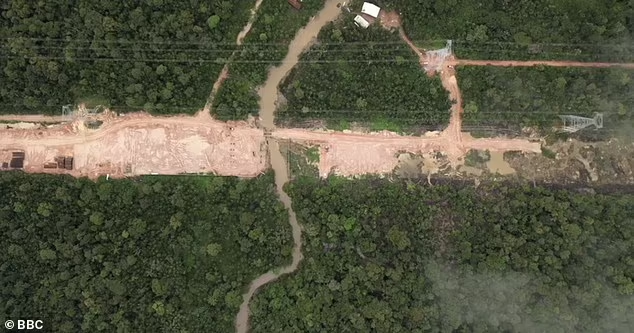
The Ghost at the Feast: Why COP30 is Destined to Fail, and the Ancient Idea That Can Save Us
This coming November, the world's leaders will gather in Belém, Brazil, for the 30th Conference of the Parties (COP30). There will be urgent speeches, complex negotiations, and solemn pledges. And yet, we can predict with near certainty that it will be another grand "talkfest," failing to produce the binding, transformative action required.
The Ghost at the Feast: Why COP30 is Destined to Fail, and the Ancient Idea That Can Save Us
Institute of Area Management, (-IAM-) Iba, Zambales Philip G. Camara, Founder September 18, 2025
This coming November, the world's leaders will gather in Belém, Brazil, for the 30th Conference of the Parties (COP30). The setting, the mouth of the Amazon, is meant to be symbolic of the stakes. There will be urgent speeches, complex negotiations, and solemn pledges. And yet, we can predict with near certainty that it will be another grand "talkfest," failing to produce the binding, transformative action required to contain global warming.
The reason for this inevitable failure will not be a lack of good intentions or scientific data. It will be the ghost at the feast: the invisible, unquestioned ideology of Sectoralism that structures every negotiation, every proposal, and every half-measure.
Until we name this ghost and reclaim the ideology it displaced, we are doomed to repeat this cycle of failure.
The Anatomy of a Sectoral Talkfest
The very structure of a COP guarantees paralysis. It is a negotiation between sectors that are programmed to be in conflict.
The Political Sector (Nation-States): Each nation's primary goal is to defend its own "economic competitiveness" and national interest.
The Economic Sector (Corporations & Finance): Their legal and fiduciary duty is to maximize shareholder profit within the current quarter or fiscal year.
The Environmental Sector (The Planet): Represented by scientists and activists, this sector has no formal power. Its health is treated as a commodity to be bargained over—a "cost" to be minimized or an "externality" to be offset.
In this framework, a stable climate is not the shared, non-negotiable foundation for all activity; it is a bargaining chip. Nations trade emissions credits, corporations lobby to protect subsidies, and the can is kicked down a rapidly shortening road.
They are trying to solve a problem of the "whole" using a system that only recognizes the "parts." It is a structural impossibility.
Reclaiming the Rightful Throne: The Wisdom of Areaism
The tragedy is that Sectoralism is a historical aberration. For millennia, humanity operated under a different, more integrated ideology, one that is now being given a name: Areaism.
Before the colonial era, beginning in the 16th Century, communities were intrinsically bound to the carrying capacity of their specific place—their Area. A village in the pre-colonial Philippines or a canton in the Swiss Alps could not "externalize" the cost of soil erosion or a depleted fishery. The feedback loop was immediate and visceral. The health of the ecosystem and the health of the community were understood to be the same thing. This is the essence of Areaism.
This is not a romantic nostalgia for the past. It is a time-tested science of human organization, a system of consensual governance and collective intelligence rooted in a defined place.
It is the wisdom Nobel Laureate Elinor Ostrom documented in communities successfully managing their common resources for centuries. It is the logic Sixto K. Roxas formalized in Area Economics, where the goal is not abstract GDP growth, but the optimized well-being of households within their biodistrict's regenerative capacity.
How Areaism Would Address the Climate Crisis
The difference in approach is profound.
COP30's Sectoral Approach: Asks, "How can 198 competing nations agree on abstract carbon reduction targets without hurting their individual economies?" The answer is: they can't, not in any meaningful way.
Areaism's Integrated Approach: A Biodistrict Council in Central Zambales asks, "What is the best investment to improve the long-term health of our 54,000 households and our 150,000-hectare territory?" Their own holistic models, balancing ecology and household needs, point to reforestation to stabilize their water supply, regenerative agriculture to secure their food, and local renewable energy to lower costs.
In this model, massive carbon sequestration and a resilient local economy are not conflicting goals; they are synergistic outcomes of a single, sensible decision. The climate is no longer a global abstraction to be debated; it is a local reality to be managed for direct, tangible benefit.
Conclusion: The leaders in Belém will be trapped in a paradigm that cannot solve the problem it created. The real work of climate restoration will not happen in the plenary halls of COP30. It will begin when we delegitimize the failed ideology of Sectoralism and allow Areaism to reclaim its rightful throne.
The real solutions will be built not by nations negotiating from a top-down, competitive framework, but by a global network of empowered, self-regulating Areas healing the world from the ground up.
About Philip G. Camara
Philip Camara is the founder of the Institute of Area Management and a leading advocate for sustainable community development through the principles of Areaism. His work focuses on transforming how communities organize themselves for collective well-being and ecological resilience.


